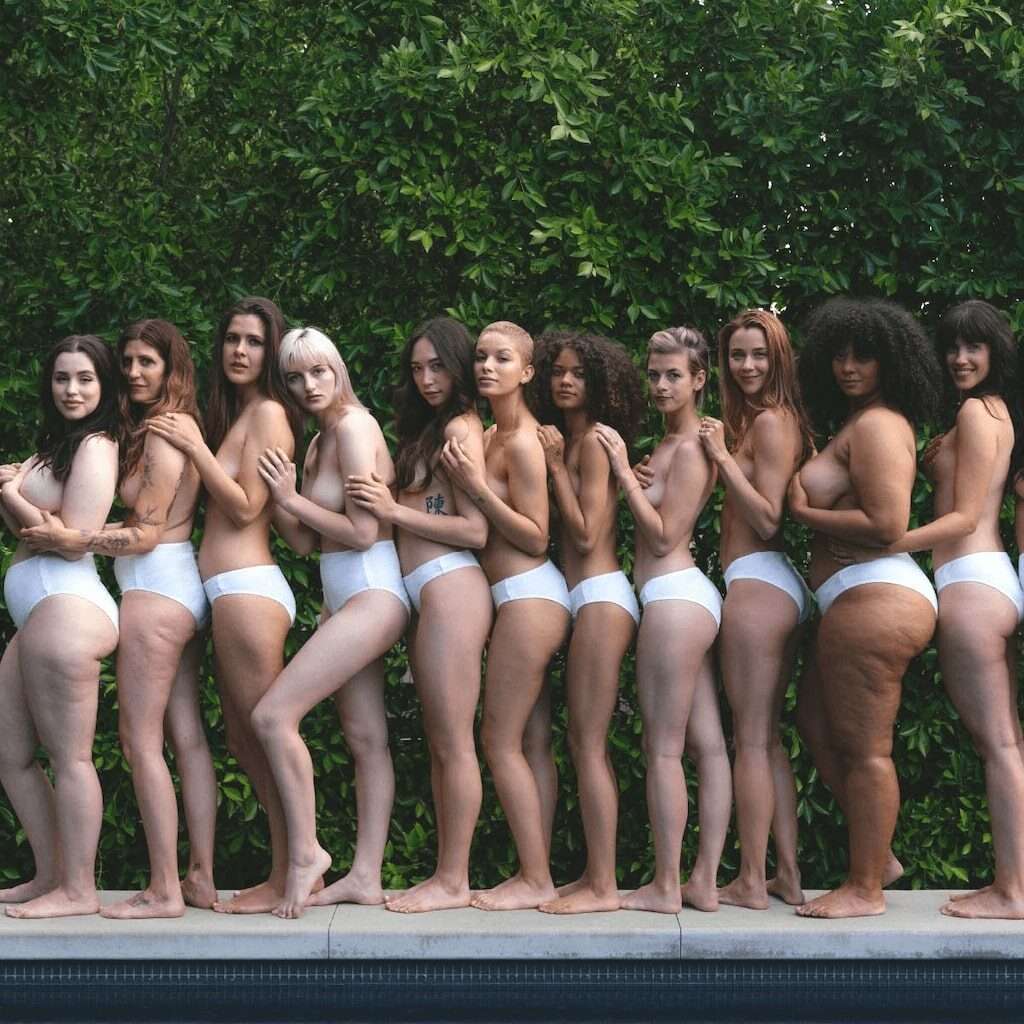There’s sustainable underwear, and then there’s Kent’s ‘put it in your compost and watch it biodegrade in 90 days’ underwear. We caught up with Kent founder, Stacy Grace, to learn more.
Underwear needs to be comfortable, breathable, and durable, but it can also be sustainable and compostable, too, according to Stacy Grace, the founder of Los Angeles underwear brand Kent. We hear you: underwear that decomposes? Alongside food waste? That doesn’t initially sound like something you’d want to put on your body. But trust us: Grace is here to change your mind.
The problem with mainstream, synthetic underwear
It’s no secret that the fashion industry has a serious waste problem. Every second, another truckload of textiles turns up at a landfill. Most of this waste (85 percent, in fact) is made from fossil fuel-derived synthetics, like polyester or nylon, which won’t biodegrade for centuries, and will instead leach microplastics into the soil and contribute to landfill emissions.
Many different garments are thrown away, but the underwear market is one of the biggest culprits for textile waste. In fact, 11 million pounds of undergarments are sent to landfills every single day in the U.S. “You can’t donate or resell underwear at the end of its life,” says Grace. “It just ends up in the trash.”

But even before it becomes waste, synthetic underwear is still a problem for the environment. With every cycle of laundry, microplastics are released into the waterways via our washing machines. And that’s not all; all of the plastic in our clothing could be damaging our health, too.
In 2022, testing by California’s Center for Environmental Health found levels of BPA — which research suggests is harmful to humans — in polyester-spandex socks and sports bras (from several major brands) that were up to 19 times the state’s safety limit. “[BPA] is the ingredient in water bottles that nobody wants to have, so why are we allowing it in our clothing?,” says Grace.
Compostable underwear presents a safer, more sustainable solution
Kent, which makes underwear from purely plant-based, non-toxic, compostable materials, is Grace’s solution to the synthetic nightmare that is the mainstream underwear market. The brand’s go-to material is GOTS-certified organic pima cotton, which is grown in Peru. According to Kent, it uses 87 percent less water than conventional cotton and results in 45 percent fewer emissions, too. And because it isn’t blended with any form of plastic-based material, this type of cotton will entirely break down at the end of its life. While compost ecosystems all vary, Kent says its underwear will generally break down in about 90 days — about 30 days less than it takes for an avocado pit to break down.
The brand is not only committed to sustainability — but it’s also committed to taking care of people. Everyone deserves comfortable, durable undergarments that don’t cost the planet. And the people that make those undergarments also deserve to be treated fairly. The mission caught the attention of Shark Tank investor Daymond John in 2022. He made a $200,000 investment into Kent on the live Season 14 Shark Tank premiere.

We spoke to Grace to learn more about the brand’s ethos and its radical stance on synthetics, but also to find out the answer we’re all dying to know: just how, exactly, do you compost a pair of briefs?
*This interview has been edited for length and clarity.
Ethos: You’re dedicated to keeping your supply chain as transparent as possible, which doesn’t appear to be that common in the wider fashion industry. Why is that?
Stacy Grace: Often in the fashion industry, the supply chain can literally be a “black box.” Brands have no idea where their fabric comes from, who is cutting and sewing it, or who is finishing the garments. Companies traditionally purchase a finished garment from one point of contact, but they cannot trace every element of its journey to get to the customer. We opted to create our own supply chain rather than relying on anyone else to do it for us. That gives us not only a strong peace of mind but also, we can feel confident that we are doing our due diligence.
Ethos: It makes sense. After all, research suggests that more consumers than ever want the fashion industry to be more responsible. And not just to human beings, but to the planet, too. With that in mind, can you talk us through what initially drew you to the idea of making compostable underwear?
SG: I come from a sustainable fashion background, and I have worked across Europe, the U.K., Canada, and the U.S. But still, I have seen companies using synthetic fabrics. All around, I just saw a real need for a 100 percent natural offering in the [fashion] space. I couldn’t believe it didn’t exist. So we started by launching a Kickstarter, which was really successful in 2019, and then we formally launched our website and products in the summer of 2020.
Ethos: Kent not only prioritizes natural fabrics, but it also rejects synthetic materials completely. Do you think there is a place for synthetics in the fashion industry at all?
SG: We have made a company-wide commitment to never use synthetics — ever. It’s a very radical position to take, but we truly believe that there is no place for them in this industry. I’m so excited by innovations that are happening in fashion for synthetic alternatives made from bio-based and renewable resources. A lot has changed in the past five years and I am confident a lot more will happen in the next five, so [the industry] can hopefully step away from synthetics once and for all.

Ethos: There are many different sustainable, natural fabric options – why did you choose to prioritize compostable options, specifically?
SG: For two main reasons. The first is to make the most natural, clean, healthy, and comfortable products possible that look and feel good. The second is to address the growing clothing waste crisis and the incredible amount of fashion that ends up in landfill every day. We wanted to think about the circular design of clothing in a way that could actually regenerate the Earth in the process.
Ethos: Can you talk us through how someone can actually compost their Kent underwear when they’re finished with it?
SG: You could compost our clothes in your own backyard, but if you don’t have access, you can join our compost club and we will compost them for you. If you’re composting at home, simply wash them in an eco-friendly, synthetic-free detergent, and then cut them up into little pieces and pop them into your compost like you would your kitchen scraps. Even the elastic in our underwear is 100 percent plant-based and compostable.
Ethos: It sounds like this is a product that really can benefit everyone, from consumers to the planet.
SG: At the end of their life, our compostable clothes break down into nutrient-rich soil. These then help to sequester carbon, and that helps support climate change reversal. Composting is such a fantastic naturally occurring tool that happens in our environment, so why couldn’t we apply it to our clothes?
Related on Ethos:


